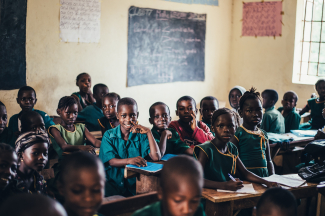FILTER
Displaying 61 - 70 of 124 publications
This study shows that access to grid connectivity increases the number of work hours, female employment, household expenditure, and certain educational outcomes.
| EfD Discussion Paper | Uganda
Loans can help women lower poverty and become economically empowered.
| Peer Reviewed |
This study shows that households, where partners make decisions together, adopt more climate-smart strategies, have a higher yield, and have better household outcomes, compared to households with one...
| EfD Discussion Paper | South Africa, TanzaniaAbstract The rationale for FP use has changed over time to progressively emphasize poverty reduction and welfare improvements. However, literature hasn’t largely matched this change. This study…
| Peer Reviewed | Tanzania
We used two-wave panel data obtained from avocado growers in Murang’a County in Kenya to examine, through the perspective of gender, the dynamics of farmers’ participation in avocado production and...
| Peer Reviewed | KenyaAbstract Despite the employment potential of Tanzania’s tourism sector, the sector is not absorbing the youth sufficiently, who remain unemployed after graduating from various institutions. This study…
| Peer Reviewed | TanzaniaWe study how partners in a household make decisions for themselves and for their spouses regarding intertemporal choices in a field experiment in rural China. We find that men, but not women, make…
| Peer Reviewed | China| Peer Reviewed | Sweden, Ethiopia
The interactions between prevailing gender gaps and climate variability and change (CVC) response strategies can intensify inequalities among farmers. Hence, this study examined implications of CVC…
| Peer Reviewed | Nigeria
Study in semi-arid areas in India shows improved nutritional intake in households with working women
| Peer Reviewed | India